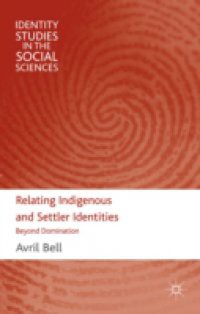In this era of recognition and reconciliation in settler societies indigenous peoples are laying claims to tribunals, courts and governments and reclaiming extensive territories and resource rights, in some cases even political sovereignty. But, paradoxically, alongside these practices of decolonization, settler societies continue the work of colonization in myriad everyday ways. This book explores this ongoing colonization in indigenous-settler identity politics in Australia, Canada, New Zealand and the United States. These four are part of the 'Post-British World' and share colonial orientations towards indigenous peoples traceable to their European origins. The book identifies a shared settler imaginary that continues to constrain indigenous possibilities while it fails to deliver the redemption and unified nationhood settler peoples crave. Against this colonizing imaginary this book argues for the need for a new relational imaginary that recognizes the autonomy of indigenous ways of being, living and knowing.

